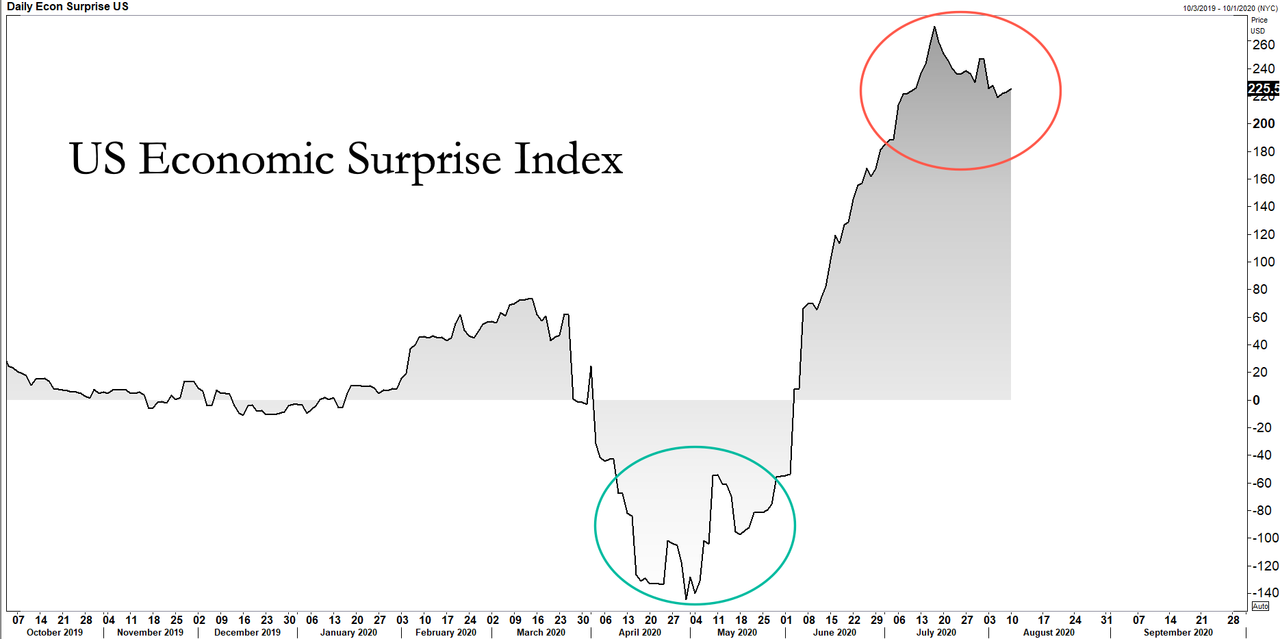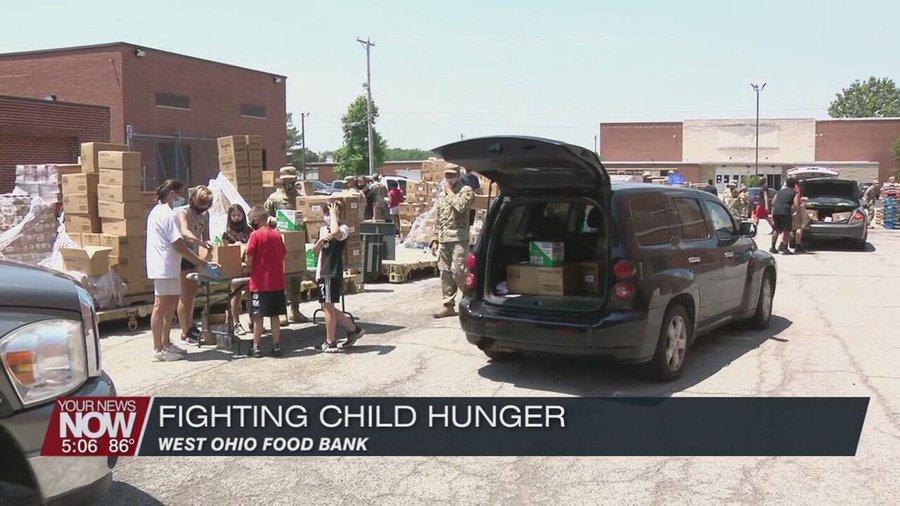 By Tyler Durden
By Tyler Durden
The latest economic data suggest the US recovery stalled. One look at the Citi US econ surprise index, as of this week, shows the recovery ran out of steam last month. A fiscal cliff is already underway, set to enter the second week on Friday (Aug. 14) as tens of millions of Americans are unemployed and have yet to receive their stimulus checks.
The recovery, so far, is a massive economic sugar rush, entirely a function of the Trump administration on a reckless spending spree. One way the administration can artificially supercharge consumption is through issuing direct transfer payments to the working poor. The extra money has been used by households to pay down credit card bills, put food on the table, and pay housing expenses, while others used the free money to buy automobiles and FANG stocks.
President Trump signed an executive order over the weekend to fund another round of stimulus checks of approximately $400 per week, a reduction from the $600 federal aid seen in the first round from March to the end of July.
Massive federal spending has transformed America into a welfare state under the GOP watch. Tea Party politicians aren’t pleased with the Republican establishment’s wild spending spree.
With a fiscal cliff coming up on the second week, tens of millions of folks are unable to consume because they are insolvent and jobless, and their amount of consumption is dependent on the government. We’ve noted before, a quarter of all household income is derived from the government. And with no stimulus checks in the mail, that means Americans are returning to food banks.
Claudia Raymer, who manages a network of food-security groups in Ohio County, West Virginia, told Bloomberg when stimulus checks stopped arriving in late July, there was an immediate impact on households, resulting in rising food bank activity among the working poor.
See: 177 Different Ways to Generate Extra Income
The fiscal cliff will be more damaging in lower-income communities (than major metros), such as small towns in West Virginia, where folks were being paid handsomely by the federal government to sit at home. The problem is, once the payments end, consumption plunges, and the local communities return to a recessionary environment. With federal aid already running out for the stimulus program, the fiscal cliff has already been realized in West Virginia:
“We’ve definitely already seen food-security needs increase, just in a week, since the extra unemployment has ended,” Raymer said.
Treasury Secretary Steven Mnuchin said Monday the next round of stimulus checks could take a couple of weeks to distribute, which would suggest households might not receive their stimulus checks until the end of August.
Days before the stimulus program ended (late July), a sizeable food bank line appeared in Baltimore, Maryland.
behind the scenes: food bank line in Baltimore just getting started – a lot of hungry and broke families as fiscal cliff begins pic.twitter.com/30C1OBJDSP
— Alastair Williamson (@StockBoardAsset) July 26, 2020
The economic crisis is far from over. Households are entirely screwed as depressionary unemployment levels will continue into the election. Many folks are dependent on direct transfer payments from the government and food banks for survival. Who would’ve ever thought this would be the case in the “greatest economy ever.”
Subscribe to Activist Post for truth, peace, and freedom news. Send resources to the front lines of peace and freedom HERE! Follow us on SoMee, HIVE, Parler, Flote, Minds, and Twitter.
Provide, Protect and Profit from what’s coming! Get a free issue of Counter Markets today.



Be the first to comment on "Food Bank Strains Emerge As Economy Falls Off Fiscal Cliff"